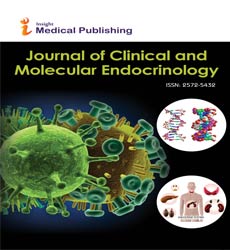Abstract
An Evaluation of Diabetes Ameliorating Capacity of Terminalia bellerica Ethanolic Extract on Alloxan-Induced Diabetic Rat Including Safety Profile Study.
Diabetes is one of the world’s most widespread diseases. It is a chronic, metabolic condition and to treat this condition; plant extracted products are used. Plants are multifarious sources of different medicinal compounds that can be used to improve diabetes. The fruit of T. bellerica (commonly known as ‘Bohera’) is used for this purpose. Our present investigation was designed to investigate the hypoglycemic effect, lipid profile and safety profile and thus, monitored an ethanolic extract of T. bellerica fruit in alloxan-induced diabetic rats. In rats, diabetes was induced by intraperitoneal alloxan injection at a dose of 150 mg/kg body weight, and T. bellerica fruit extract was fed to the rats at a dose of 750 mg/kg. Blood glucose levels, lipid profile, and safety profile were assessed by measuring serum cholesterol, free fatty acids, phospholipids and triglycerides, SGOT, SGPT and creatinine levels in diabetic non-diabetic rats before and after extract administration. After evaluating the amount of blood glucose, the hypoglycemic efficacy was found to be equivalent to that of metformin (p> 0.05) given at a dose of 500 mg/kg. Lipid profile and safety profile were analyzed by measuring the levels of tissue cholesterol, free fatty acids, phospholipids and triglycerides, SGOT, SGPT and creatinine. It was found that both fruit extract of T. bellerica and metformin strengthened the diabetes-induced pathological condition. Besides, both fruit extract of T. bellerica and metformin did not substantially affect healthy individual rats’ normal physiological condition. So, it could be also be concluded that the fruit extract of i could be used as a successful alternative therapy for the treatment of diabetes.
Author(s):
Md Rafat Tahsin, Bushratul Jannat, Amira mostafa, Fahima Akhter Purni, Sanzida Khondoker, Samia Islam, Amena Alam Shanta, Sadia Afrin, Quazi Yousuf Asadullah, Md. Shah Amran
Abstract | Full-Text | PDF
Share this

Google scholar citation report
Citations : 120
Journal of Clinical and Molecular Endocrinology received 120 citations as per google scholar report
Abstracted/Indexed in
- Google Scholar
- China National Knowledge Infrastructure (CNKI)
- Publons
- Secret Search Engine Labs
Open Access Journals
- Aquaculture & Veterinary Science
- Chemistry & Chemical Sciences
- Clinical Sciences
- Engineering
- General Science
- Genetics & Molecular Biology
- Health Care & Nursing
- Immunology & Microbiology
- Materials Science
- Mathematics & Physics
- Medical Sciences
- Neurology & Psychiatry
- Oncology & Cancer Science
- Pharmaceutical Sciences

